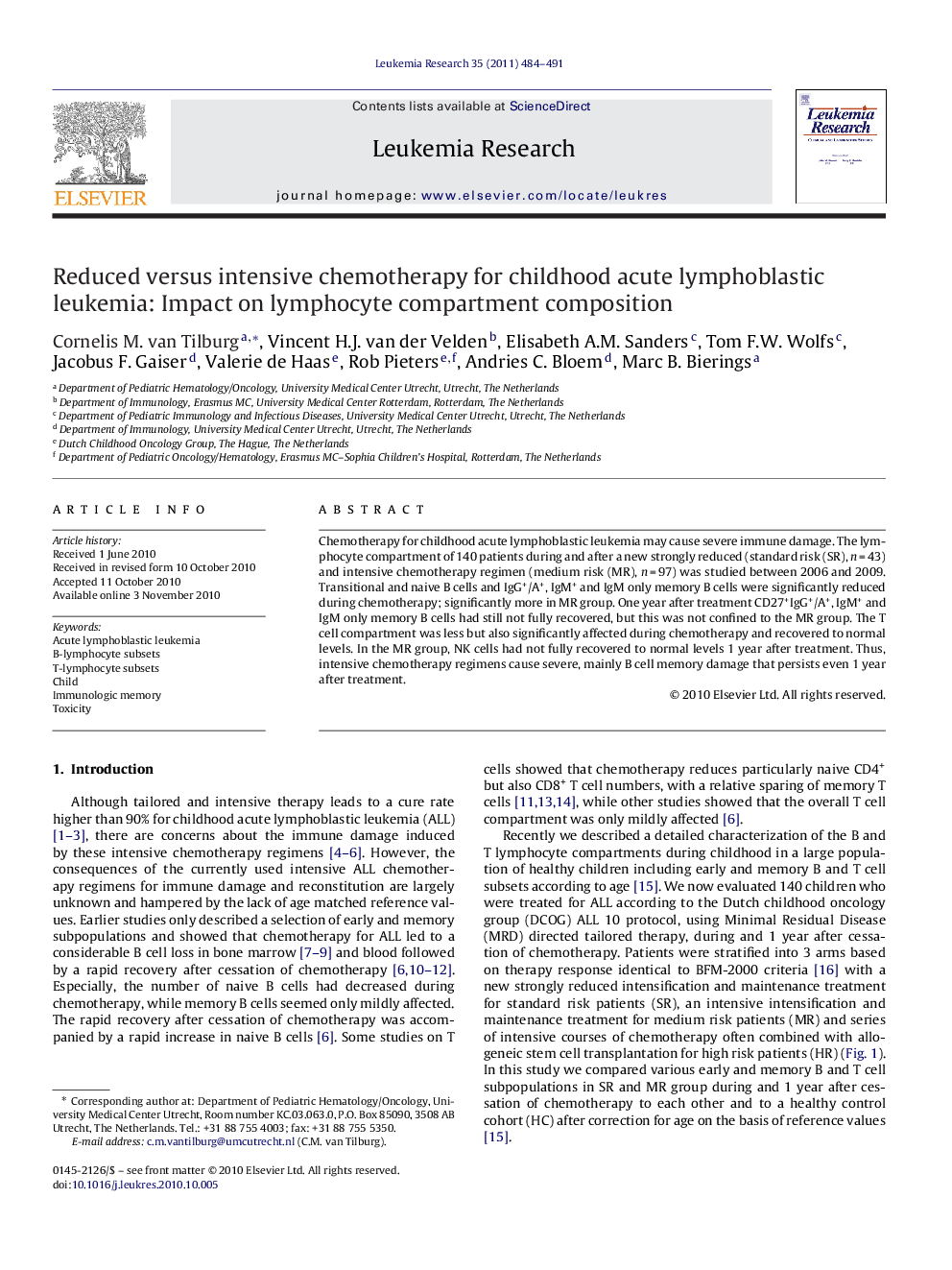| Article ID | Journal | Published Year | Pages | File Type |
|---|---|---|---|---|
| 2137332 | Leukemia Research | 2011 | 8 Pages |
Chemotherapy for childhood acute lymphoblastic leukemia may cause severe immune damage. The lymphocyte compartment of 140 patients during and after a new strongly reduced (standard risk (SR), n = 43) and intensive chemotherapy regimen (medium risk (MR), n = 97) was studied between 2006 and 2009. Transitional and naive B cells and IgG+/A+, IgM+ and IgM only memory B cells were significantly reduced during chemotherapy; significantly more in MR group. One year after treatment CD27+IgG+/A+, IgM+ and IgM only memory B cells had still not fully recovered, but this was not confined to the MR group. The T cell compartment was less but also significantly affected during chemotherapy and recovered to normal levels. In the MR group, NK cells had not fully recovered to normal levels 1 year after treatment. Thus, intensive chemotherapy regimens cause severe, mainly B cell memory damage that persists even 1 year after treatment.
